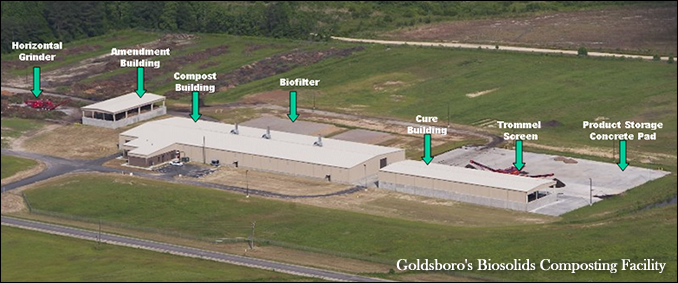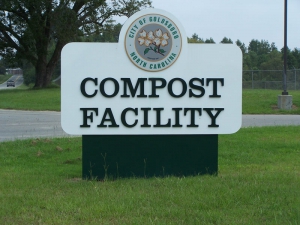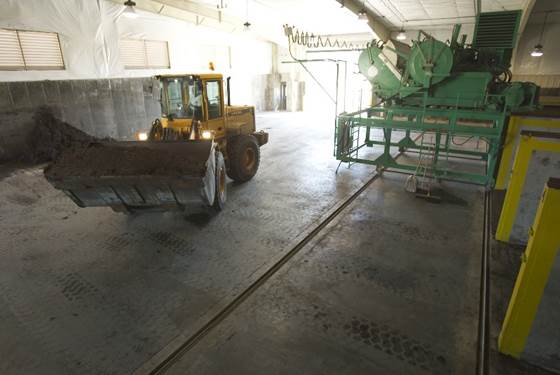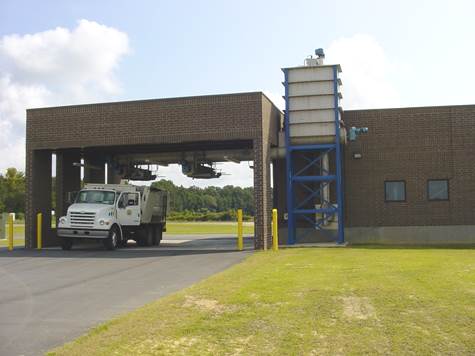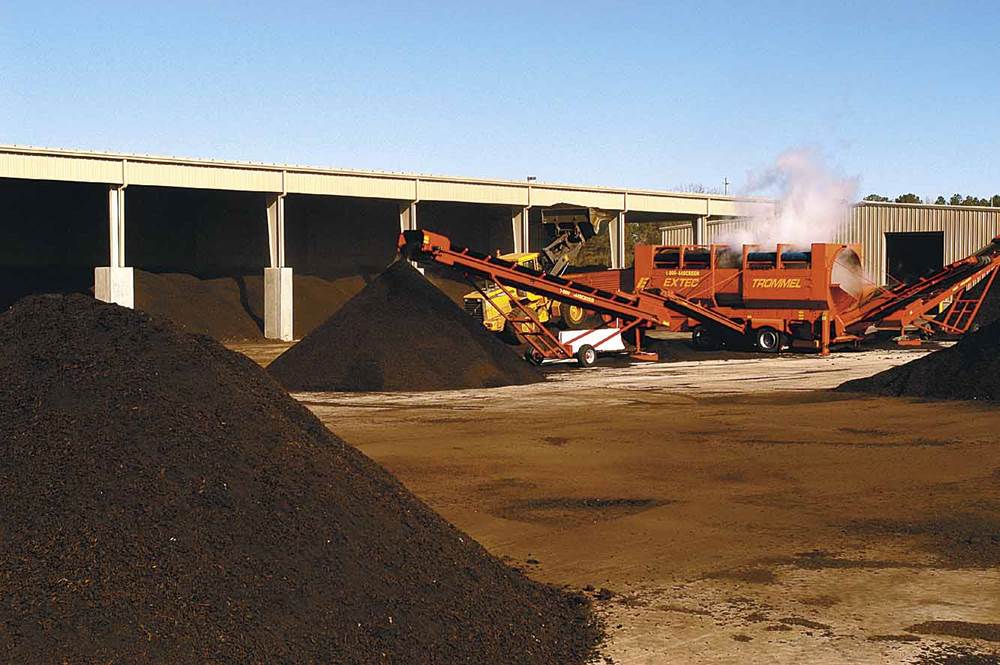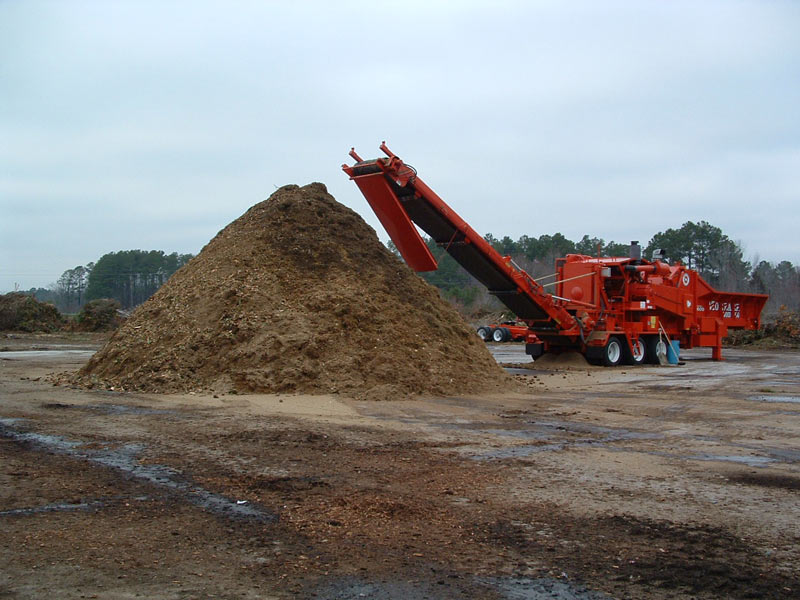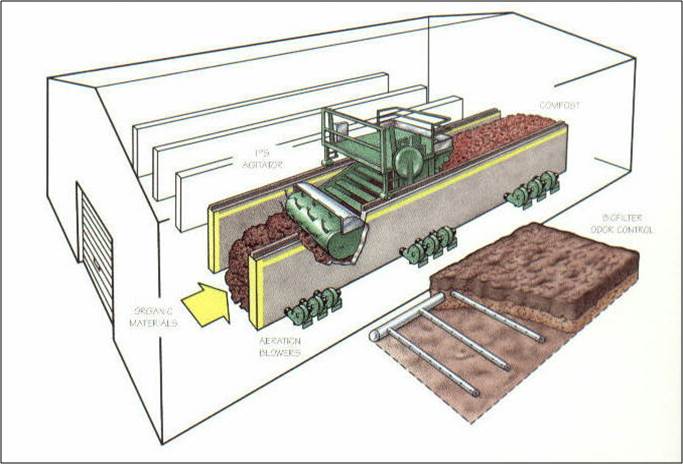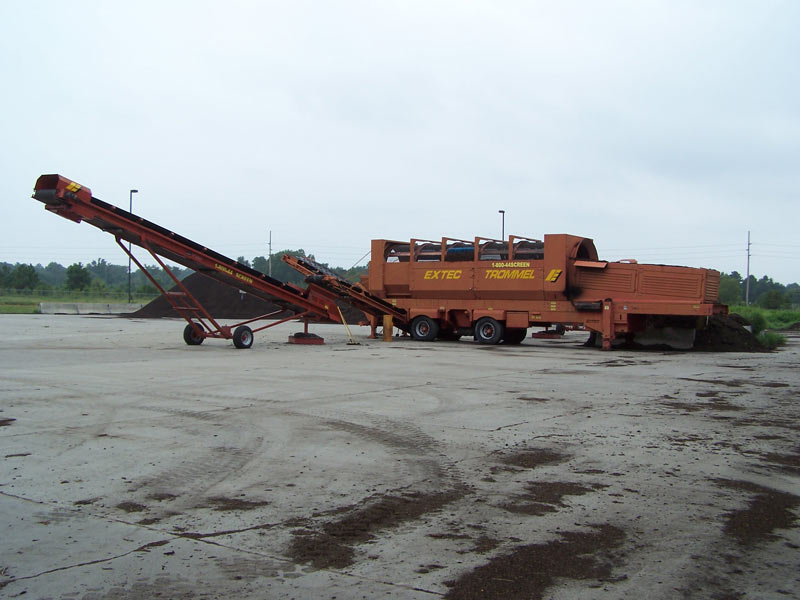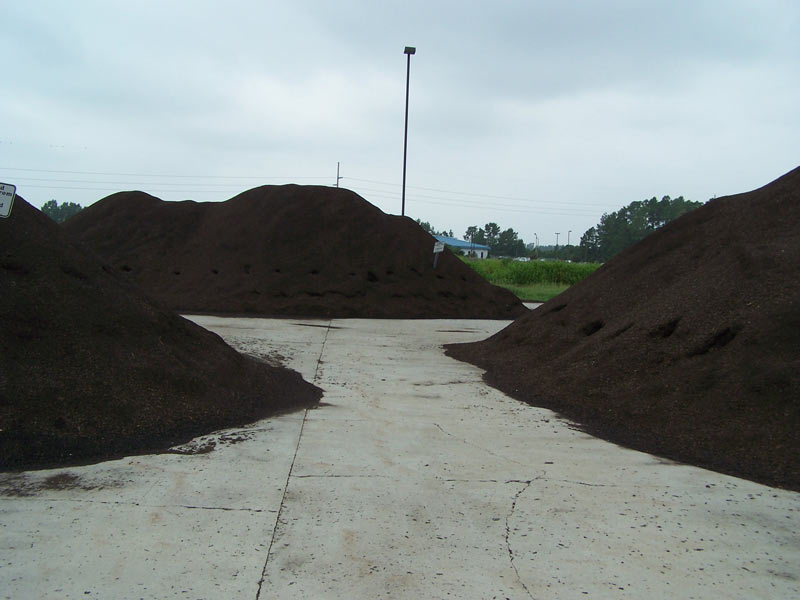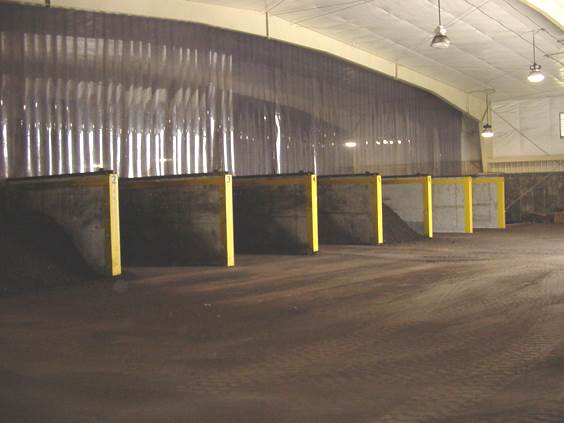Compost Facility
Open to the Public
Monday to Friday — 8am-4pm
Questions Call 919-735-0110
Retail Compost
- $4.00 per 30 lbs bag*
Wholesale Compost
- $2.00 per 30 lbs bag**
Mulch
As another environmental project, the City of Goldsboro constructed a Biosolids Compost Facility in 2002. As part of this project, a biosolids dewatering facility was built. The total for both projects and associated equipment was approximately $9.3 million. The long-term advantages of composting biosolids outweighed lower cost alternatives, such as land application. Land application of biosolids generated at a wastewater treatment plant, the most common disposal method in the United States, is problematic due to inaccessibility to fields during extensive rain periods and also due to environmental liability.
As part of the city’s solid waste program, tree limbs are collected from the curb at city residences. The city had no reliable disposal method for these tree limbs. Composting both the chipped tree limbs and the dewatered biosolids creates a desirable marketable product which solved both problems.
The City of Goldsboro has enrolled in the U.S. Composting Council’s Seal of Testing Assurance Program. Samples of the compost are sent to the Seal of Testing Assurance laboratories every 60 days for testing. The compost product is also registered with the North Carolina Department of Agriculture as a fertilizer.
The current capacity of the biosolids compost facility is 7 dry tons/ day (6 bays) but is expandable to 9 dry tons/day (8 bays). The composting process takes place indoors, providing the benefits of operating year-round without weather related problems and creating a Class A, “Exceptional Quality” compost.
The compost is much in demand because of its high quality which is closely controlled by computers in this state-of-the-art modified in-vessel compost facility. Temperatures created in the compost process are closely monitored by thermocouples that send information to a computer to verify that the compost has met and exceeded all of the Environmental Protection Agency requirements.
After a 30-day composting period and a 40-day cure time, the finished compost is screened to two sizes; less than 3/8” (fine) and less than 3/4” (mulch). The fine screen size is the most popular product sold by the city.
The City of Goldsboro sells the finished compost mainly to landscapers, golf courses, and garden centers. It is used at city facilities, parks, and golf course. The compost product, made from two municipal waste streams, is a perfect fit for the city’s goal of environmental stewardship.
